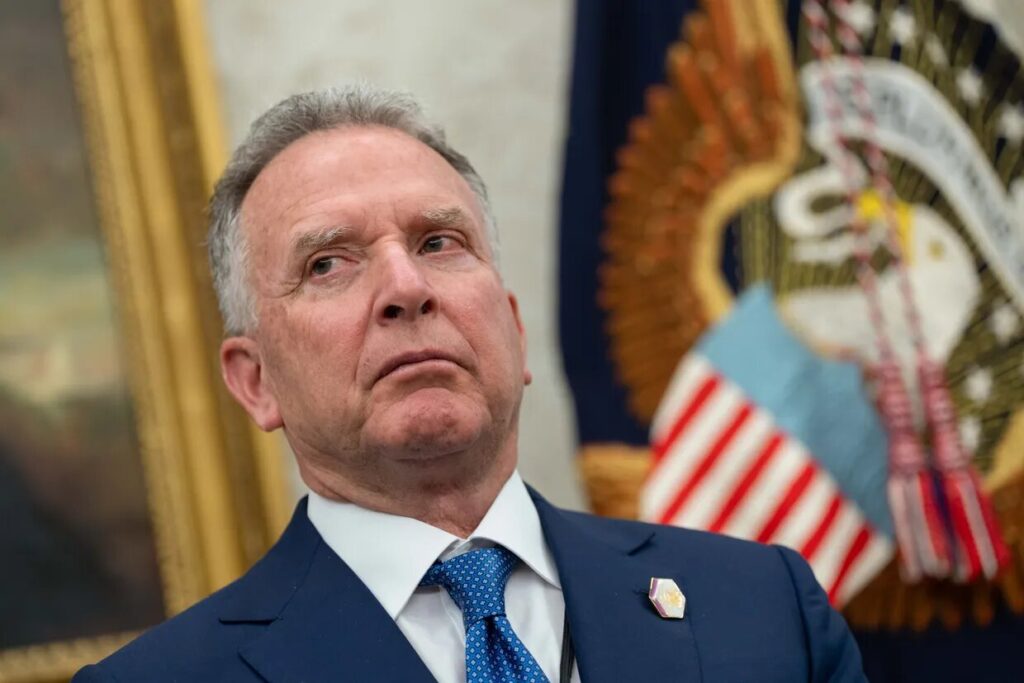TEHRAN – Washington’s reliability depends on balance, just as Iranian-US negotiators signed second-round indirect nuclear talks in Rome on Saturday.
Leaks revealing a cascade of contradictory statements from Trump administration officials, deep ideological rifts, Tehran’s calculated position hopes to project strength and clarity.
Witkov’s mixed message
US President Donald Trump’s special mission to West Asia, Steve Witkov, and Reid US negotiators during nuclear talks with Iran, exemplify the confusion in his public remarks, swinging like a pendulum.
In an interview with Fox News on Tuesday, Witkov suggested that the US may accept limited uranium enrichment by Iran for private purposes. “Conversations with Iranians will focus on two key points: enrichment levels and verification. Iran should not be enriched by more than 3.67%,” he said.
However, within hours, Witkov reversed the course on social media, demanding Iran “to halt and eliminate nuclear enrichment and weaponization programs completely.”
The sudden shift surprised the observers and drew sharp criticism from Tehran. Esmaeir Bakaei, a spokesman for the Iranian Ministry of Foreign Affairs, compared the flip-flop to moving the goal post in soccer.
Analysts suggest that Witkov’s whiplash reflects a tug of war within the administration. His first statements supported working with Vice President JD Vance and “America First” to encourage diplomacy, but his firmed stance reflected ultra-Zionionist neoconservatives such as national security adviser Michael Waltz, who has long pushed harmful policies about Iran.
Thus, Witkov’s flip-floping can be seen not only as a personal misstep, but as an obvious symptom of broader US policies in the chaos.
Leaks expose clefts: “Abandoned Strike” and Cabinet Discord
A recent New York Times report exposed further fractures in the administration. According to the article, Trump rejected Israeli military strike proposals for Iran’s nuclear facilities during a tense, oval office meeting with Prime Minister Benjamin Netanyahu.
According to American newspapers, the plan, scheduled for May, called for US-backed airstrikes targeting underground enrichment sites using 30,000 pound bunkerbuster bombs.
Instead, Trump chose to pursue diplomacy, reportedly telling Netanyahu “we are not supporting military action while we are at the table.”
Some may view the leak as yet another wave of threat aimed at enforcing Iran to surrender, but this could be attributed to opposition factions as well.
Waltz and Secretary of State Marco Rubio reportedly lobbyed aggressively for the strike. They clashed with Vance and directors of National Intelligence Tulsi Gabbard, who warned of creating wider conflicts in West Asia.
In a recent public disclosure, Gabbard’s office has highlighted information assessments that prove that Iran has not developed or actively pursued nuclear bombs. The revelation further dismantled the narrative of Warmanger and anti-Iranian voices, revealing this reality of the US intelligence agency.
Analysts said the lack of internal unity would always undermine the US government’s position. Furthermore, internal conflict has made us feel uneasy about our “allies.”
Officials in the Israeli administration have personally expressed their frustration over Trump’s rejection of strikes, but European diplomats fear that the regime’s consistency can be fully affirmed.
Iran’s stable hands
In the midst of the Washington turmoil, Tehran predicts an unwavering resolve.
In a recent address to senior Iranian officials, the leader of the Islamic Revolution, Ayatollah Seiyed Ali Khamenei warned against both excessive optimism and excessive pessimism over negotiations with the United States.
He noted that the initial decision to engage in consultations is well-performed and future measures should be taken accurately, keeping in mind that both the red lines on Iran and the opposite side are clearly defined.
Iranian officials and negotiators reflect the same principles, citing sovereignty and resistance to Western pressure.
Therefore, only by maintaining a more coherent player and sticking to its fundamental position can Iran turn us into diplomatic advantages.

